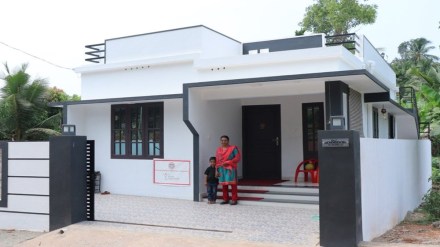The Centre is keen to expand the ambit of the Pradhan Mantri Awas Yojana (PMAY) 2.0, a housing-for-all scheme, which aims for construction of one crore additional houses for middle and lower-middle class segments in urban areas in the next 5 years.
The Ministry of Labour and Employment has taken an initiative now to bring marginalised workers across the country under the ambit of the Modi government’s flagship scheme.
PMAY Scheme to include disadvantaged or marginalised workers across the country
The labour ministry has written a letter to all states, urging them to include migrant workers, building workers, beedi workers, cine workers, non-coal mine workers, contract labourers, and other unorganised workers under the housing scheme, according to a PIB release.
Also read: Delhi-NCR’s Top 3 emerging real estate hotspots for smart investors
“The decision follows the Union Cabinet’s approval to extend the implementation of PMAY for an additional five years, from FY 2024-25 to 2028-29, with the aim of providing 2 crore additional houses to eligible beneficiaries. The initiative recognizes the housing needs of economically vulnerable workers,” the release said.
The labour ministry has emphasized that these workers represent a disadvantaged section of society and ensuring their coverage under PMAY is not only a matter of social justice but also a necessary step towards improving their living conditions.
What is Pradhan Mantri Awas Yojana-Urban (PMAY-U)?
PMAY-U is one of the major flagship programmes being implemented by Government of India to provide all-weather pucca houses to all eligible beneficiaries in the urban areas.
In June, the Union Cabinet took a resolve to provide assistance to 3 crore additional rural and urban households for the construction of houses, to meet the housing requirements arising out of the increase in the number of eligible families. PMAY-U 2.0, with an investment of Rs 10 lakh crore, will address the housing needs of one crore families, ensuring that every citizen leads a better quality of life, the Centre said.
